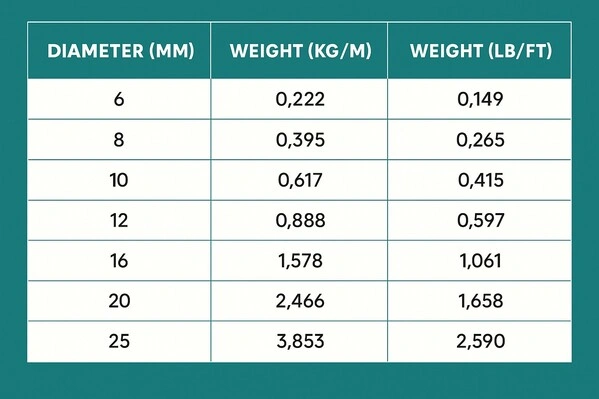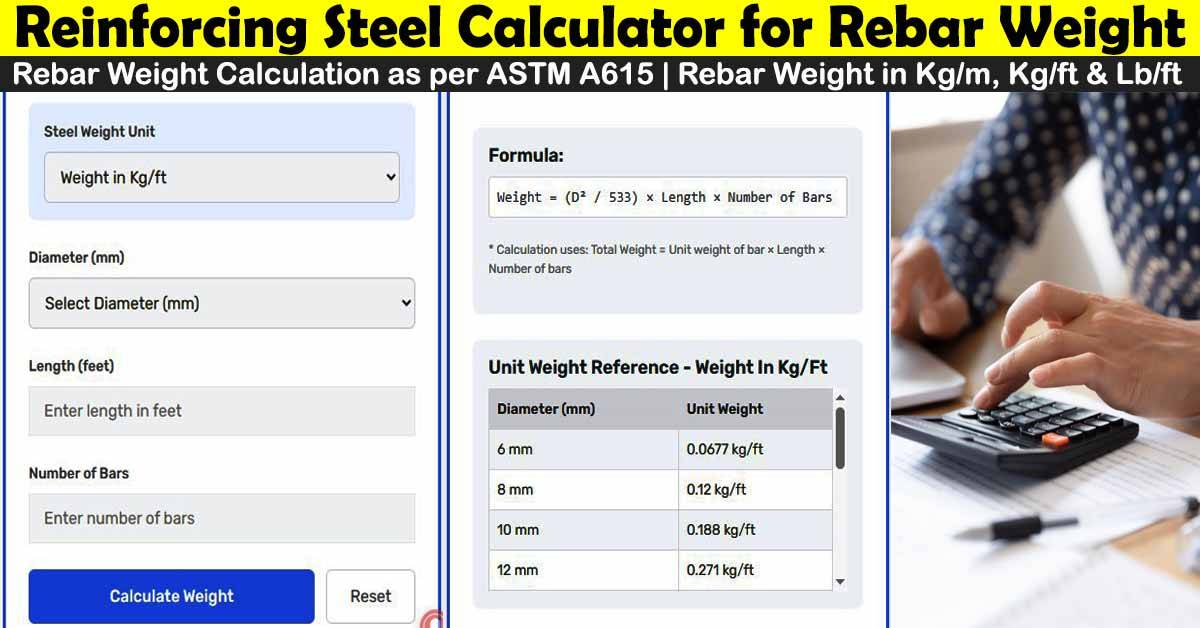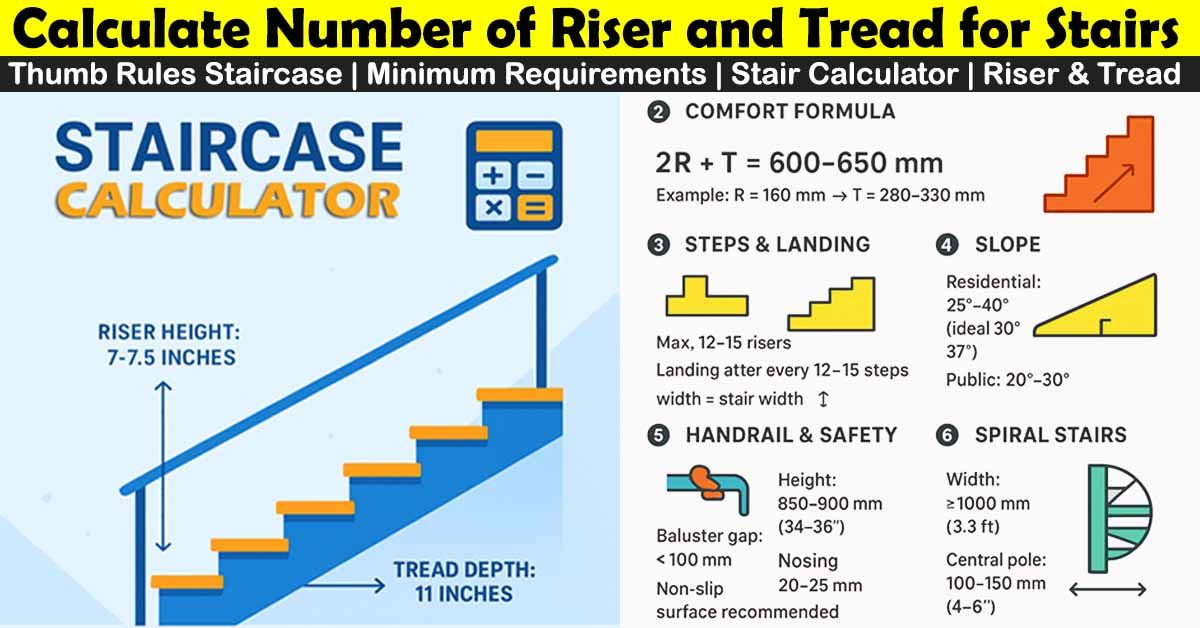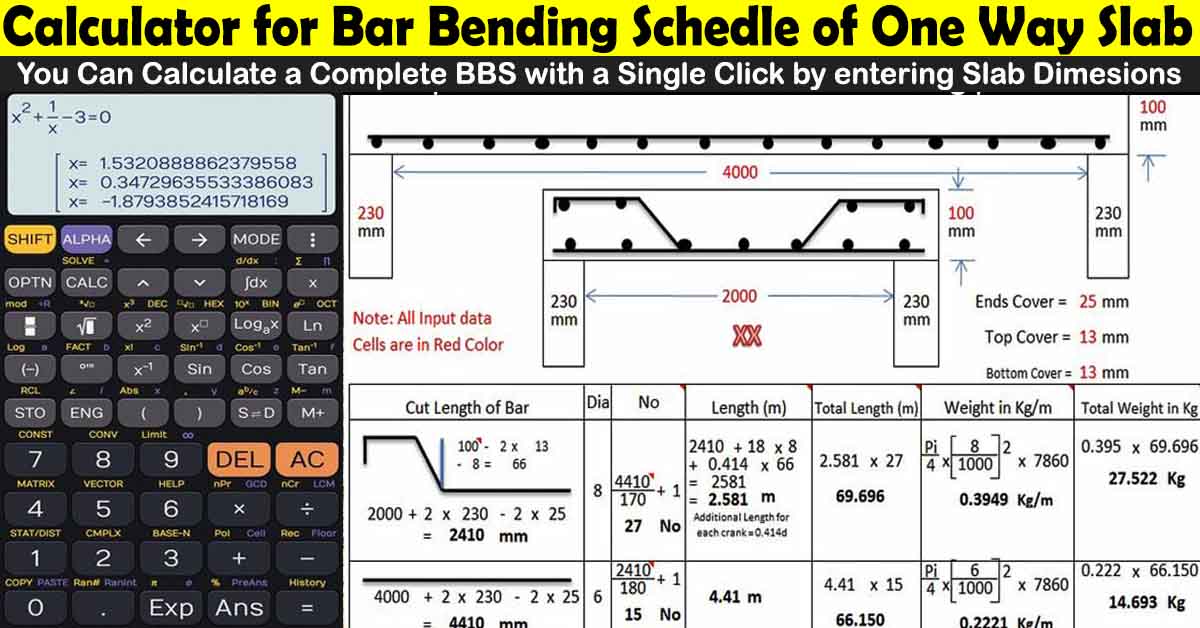Last updated on: September 5, 2025
Working with steel in construction or engineering? You need to know exactly how much your bars and rods weigh. Doesn’t matter if you’re a contractor buying materials, an engineer drawing up plans, or a student trying to figure out steel basics.
A steel bar weight calculator saves time, prevents mistakes, and keeps your work accurate. We’ll cover how to calculate the weight of steel, what formulas work, and why these numbers matter so much.
Steel Bar Weight Calculator
Calculate weights for Round, Square, and Flat steel bars with precision
This weight calculator allows you to calculate or easily determine the weight of steel bars by just entering size and length. This tool saves time and gives quick, accurate results for construction work.
What is a Steel Weight Calculator?
Think of a Steel Bar Weight Calculator as your shortcut tool. It can be an app on your phone or just a formula you use to find out how heavy any steel piece will be once you know its shape and size.
No more fighting with complicated math every time you deal with beams, bars, or plates. Just punch in the basic stuff like how long it is, how wide, what shape, and boom – you get your answer right away. These calculators handle all kinds of steel:
- Round bars (like rebar you see everywhere)
- Square bars
- Flat bars
- TMT Bars (those heat-treated ones)
- Plus plates, sheets, and bigger pieces like I-beams.
Why Steel Weight Calculation Matters in Construction
1. Cost Estimation
Material cost is directly related to weight. Incorrect estimates can cause financial losses.
2. Structural Safety
Designs based on accurate steel weight ensure that the right amount of reinforcement is used, maintaining safety under load.
3. Material Ordering
Accurate calculations reduce waste and help optimize procurement with the help of the Steel Weight Calculator.
Steel Bar Weight Calculator formulas
While calculators are fast, understanding the underlying math is empowering. Every formula relies on one constant: steel density. For carbon steel, this is universally accepted as 7850 kg/m³ or 0.2836 lb/in³.
The universal formula for weight is:
Weight = Volume × Density
From this, we derive specific formulas for different shapes.
1. Round Steel Bar Weight Formula
This is the most common calculation for rebar and round rods.
Steel Bar Weight Per Meter Formula (Kg/m):
Weight = (D² / 162) × Length
- Weight is in kilograms (kg).
- D is the diameter of the bar in millimeters (mm).
- Length is in meters (m).
The 162? is derived from Pi/4, density of steel (7850 kg/m³). and unit conversions from millimeter (mm) to meter (m).
Steel Bar Weight Per Feet Formula (Kg/ft):
Weight = (D² / 533) × Length
- Weight is in kilograms (kg).
- D is the diameter of the bar in millimeters (mm).
- Length is in meters (m).
The 533 (rounded) comes from dividing by 3.28084 to convert from meters to feet.
Steel Bar Weight Per Feet Formula (lb/ft):
Weight = (D² / 24) × Length
- Weight is in kilograms (kg).
- D is the diameter of the bar in number (#).
- Length is in feet (ft).
The 24 (rounded) comes from combining steel density (0.283 lb/in3), circular area (pi/4), 12 in/ft conversion, and the bar number definition d = N/8 in (N is number).
eXamples
Calculate the steel bar weight per meter for a 12 mm diameter bar having a 1 m length.
Weight = (12² / 162) × 1
= (144 / 162) × 1
= 0.888 kg/m
Calculate the steel bar weight per feet for a 12 mm diameter bar having a 1 ft length.
Weight = (12² / 533) × 1
= (144 / 533) × 1
= 0.270 kg/ft
Calculate the steel bar weight per feet for a #4 diameter bar having a 1 ft length.
Weight = (4² / 24) × 1
= (16 / 24) × 1
= 0.667 lb/ft
This matches the standard value found in any steel bar weight chart.
2. Square Steel Bar Weight Formula
The following are the steel weight formulas for calculating the square steel weight in kilograms per meter (kg/m) and kilograms per foot (kg/ft).
Steel Weight Formula in Meter (Kg/m):
Weight = a2 x 0.00785 × Length
- Where “a” is the width of the square bar measured in millimeters (mm).
- Length is in meters (m)
Steel Weight Formula in Feet (kg/ft):
Weight = a2 x 0.00239 × Length
- Where “a” is the width of the square bar measured in millimeters (mm).
- Length is in feet (ft)
Steel Weight Formula in Feet (lb/ft):
Weight = a2 x 3.403 × Length
- Where “a” is the width of the square bar measured in inches (in).
- Length is in feet (ft)
Examples:
Calculate the weight of a 20 mm square bar that is 6 m long.
Weight = (20 x 20) x 0.00785 x 6
= (400) x 0.00785 x 6
= 3.14 × 6 ≈ 18.840 kg
Calculate the weight of a 20 mm square bar that is 6 ft long.
Weight = (20 × 20) x 0.00239 x 6
= (400) x 0.00239 x 6
= 0.956 × 6 ≈ 5.736 kg
Calculate the weight of a 2 inch square bar that is 6 ft long.
Weight = (2 × 2) x 3.403 × 6
= (4) x 3.403 × 6
= 13.612 × 6 ≈ 81.672 lbs
3. Flat Steel Bar Weight Formula
The following are the steel weight formulas for calculating the flat or rectangular steel weight in kg/m and kg/ft.
Weight of Steel Bar Formula in Meters (Kg/m):
Weight = (W x T) x 0.00785 × Length
- Where “W” is the width of the Flat bar in millimeters (mm)
- Where “T” is the thickness of the Flat bar in millimeters (mm)
- Length is in meters (m)
Weight of Steel Bar Formula in Feet (Kg/ft):
Weight = (W x T) x 0.00239 × Length
- Where “W” is the width of the Flat bar in millimeters (mm)
- Where “T” is the thickness of the Flat bar in millimeters (mm)
- Length is in feet (ft)
Weight of Steel Bar Formula in Feet (lb/ft):
Weight = (W x T) x 3.403 × Length
- Where “W” is the width of the Flat bar in inches (in)
- Where “T” is the thickness of the Flat bar in inches (in)
- Length is in feet (ft)
Examples:
Calculate the weight of a 50 mm wide, 10 mm thick flat bar that is 3 m long.
Weight = (50 x 10) x 0.00785 x 3
= (500) x 0.00785 x 3
= 3.925 × 3 ≈ 11.775 kg
Calculate the weight of a 50 mm wide, 10 mm thick flat bar that is 3 ft long.
Weight = (50 x 10) x 0.00239 x 3
= (500) x 0.00239 x 3
= 1.195 × 3 ≈ 3.585 kg
Calculate the weight of a 4 inch wide, 2 inch thick flat bar that is 3 ft long.
Weight = (4 x 2) x 3.403 x 3
= (8) x 3.403 x 3
= 27.224 × 3 ≈ 81.672 lbs
Step-by-Step: Manual Calculation Weight of Steel
Let’s put it all together. How do you calculate the weight of a 16mm diameter round bar that is 12 meters long?
- Select the formula: For a round bar, use
Weight = (D² / 162) × L. - Put in the values: D = 16mm, L = 12m
- Calculate:
- First, calculate D²:
16 × 16 = 256. - Then, divide by 162:
256 / 162 ≈ 1.580. - Finally, multiply by the length:
1.580 × 12 = 18.96 kg.
Conclusion: The single bar weighs approximately 19 kg. If you were ordering 100 of these bars, your total order weight would be roughly 1,896 kg.
Different Tools & Charts
Learning the math is good, but most of us need to get work done fast. That’s where these tools come in handy.
- Rebar Calculator: Made just for figuring out reinforcing bar weights. Usually lets you calculate multiple bars at once and handles different steel grades too.
- TMT Bar Calculator: Works exactly like any other steel bar calculator since weight depends on size, not how the steel was heated. Same math applies.
- Steel Weight Charts: Quick reference tables showing standard bar sizes and how much they weigh per meter. No math needed – just look it up.
Steel Bar Sizes and Weights Chart
A comprehensive steel bar weight chart serves as a quick reference:

Online REBAR WEIGTH Calculator vs Manual Formula
Online Calculator
Pros:
- Quick and easy to use
- Lowers mistakes from human error
- Great for big projects
Cons:
- Needs internet or an app
- Wrong inputs can mess up results
Manual Calculations
Pros:
- Works without tech
- Helps you really get how stainless steel weights work
Cons:
- Takes a lot of time
- More likely to have mistakes
For these reasons, most civil engineers lean toward online calculators for big jobs but still know manual formulas to double-check their work.
Conclusion
Getting steel or rebar weight calculation right is key for safe, cost-smart, and smooth construction. Whether you use a steel bar weight calculator or manual methods like the round steel bar weight formula, understanding the logic behind the numbers gives you better project control. For quick, mistake-free results, online metal weight calculators and standard steel bar weight charts are super helpful tools.
faqs
Here are some FAQs about a quick guide to the Steel Bar or Rebar Weight Calculator.
1. How do you measure the weight of a steel bar?
You can find the weight of a steel bar using this formula:
Weight (kg) = (D2 × L) / 162
where D (mm) is the size of the steel bar, and L (m) is the effective length. It is applicable for round bars and it is in steel density (7850 kg/m³). As an example: A 12mm round consisting of 5m length has the following weight:
(122 × 5) / 162 = 4.44 kg
2. How to calculate steel bars in kg?
Getting steel bar weight in kilograms requires you to check each bar’s thickness and length first, then use this formula:
Weight (kg) = D² × L ÷ 162
Just add up each bar’s weight when you have several bars. Most builders and engineers do this to know exactly how much steel they need.
3. What is the weight of a 40 foot steel bar?
Bar thickness decides the weight. Change 40 feet to meters first (40 ft = about 12.192 m). A 12 mm thick steel bar weighs around 0.888 kg for each meter. That gives us: 12.192 × 0.888 = 10.83 kg. Your 40-foot, 12 mm steel bar comes to about 10.83 kg.
4. How many kg is a 12mm TMT bar?
Each meter of 12 mm TMT bar weighs about 0.888 kg. Just multiply your bar length in meters by 0.888 to find the total weight.
5. How many 12mm bars are in 1 ton?
One ton means 1,000 kg. A 12mm steel bar weighs 0.888 kg per meter, so 1 ton gives you: 1000 ÷ 0.888 = roughly 1126 meters. How many bars you get depends on each bar’s length.
Say each bar is 12 meters long: 1126 ÷ 12 = about 94 bars. You need around 94 twelve-meter bars to make 1 ton.






